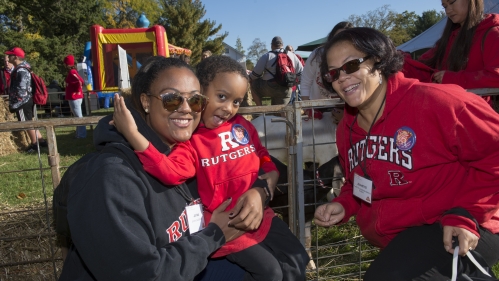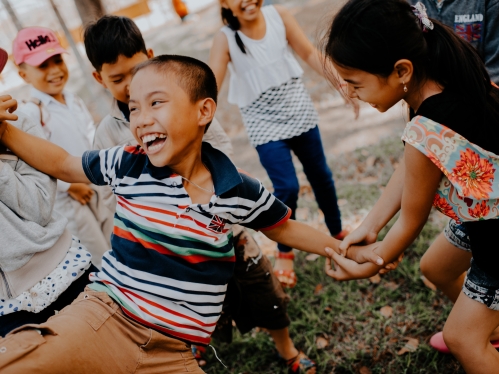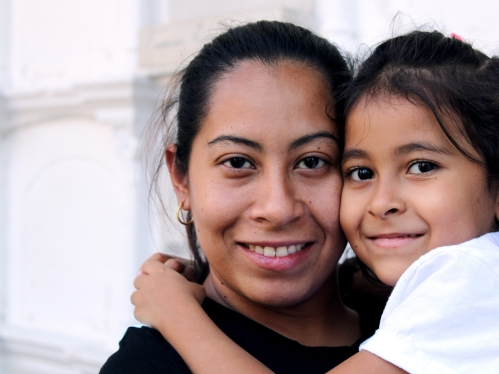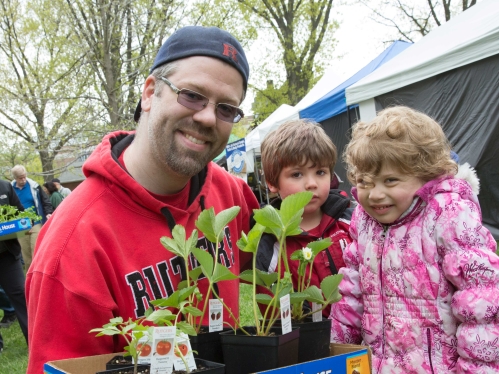
Certificate in Promoting Child and Adolescent Well-Being (ChAP)
The ChAP Certificate prepares students to work with a variety of child and youth populations in many different settings (health, mental health, child maltreatment, schools, etc.).
Focus
The ChAP certificate allows MSW students to develop specialized skills and knowledge in working with children and youth. ChAP students select a youth population and developmental stage that interests them to further ground their training. Whatever the focus, CHAP prepares its students to serve as change agents across practice settings.
ChAP students are guaranteed specialized practicum learning placements in child-focused settings; These settings may include:
- Educational
- Elementary school
- Middle school
- High school
- Community colleges and post-secondary settings
- Cocational education
- Behavioral Health
- In-patient
- Out-patient
- Hospitals
- Clinics
- Transitional programs
- Counseling centers
- Physical Health
- Hospitals
- Clinics
- Juvenile Justice
- Juvenile justice
- Detention
- Prevention programs
- Child Welfare
- Department of Children and Families
- CASA
- Prevent Child Abuse NJ
- Advocates for the Children of NJ
- Community-Based Organizations
- Sex trafficking Prevention Programs
- Policy focused Programs
- Advocacy Organizations
Child-focused populations include Children and Youth:
- With behavioral health and/or developmental disabilities
- With physical or medical impairments or challenges
- Who are immigrants or refugees
- Who are impacted by child maltreatment and/or sex trafficking
- Who identify as LGBTQ+
- Who are at risk of involvement or are involved with juvenile justice system
Developmental Stage
- Early Years (ages 0-5)
- Middle Years (ages 5-10)
- Later Years (11-18)
Social Context and Social Justice
Throughout the ChAP program we consider how intersectional issues of poverty, racism, sexism, disenfranchisement, and living in an under-resourced community affect children and youth identity development, social work practice, and social work policy. We analyze these issues using the Liberatory Consciousness Framework which is infused throughout the entire Social Work Curriculum. In ChaP we wrestle with weighty issues: how to create a just society, how to address racism and other forms of oppression within our own practice and the systems in which we work and live, and how to create a child, youth, and family centered society.

Coursework
ChAP students take:
- Advanced Contemporary Policy: Children and Youth
- A Course on Development either
- At least one Advanced Year Specialist Course
- One Approved Elective
- Clinical
- MAP

Practicum Learning Placement
ChAP students complete an individualized two-semester practicum learning placement that reflects their developmental stage and population focus (depending on availability of practicum learning placement opportunities). ChAP students benefit from the dedicated attention of the ChAP Coordinator who works closely with students to identify a placement that supports their goals.

ChAP Integrative Activities
- ChAP students are placed in a small group that is aligned with their population and developmental stage of interest
- ChAP students are required to meet once per month in their small group; completing focused reflection activities designed to support the integration of Certificate and course content; practicum learning experiences, and identity.
- ChAP students are welcome and encouraged (but not required) to participate in ChAP events offered throughout the academic year.

ChAP Certificate Policies
Please review ChAP Certificate admission and general policies here.






To Apply
Students in the Traditional (on campus) (2-year, 3-year, 4-year, or advanced standing) or Blended MSW program may apply to ChAP.
Please consult the chart at the bottom of the Certificates main page for application deadlines and the link to the application.
Frequently Asked Questions
-
Please send an email to childcertificate@ssw.rutgers.edu.
-
ChAP is the Certificate on Promoting Child and Adolescent Wellbeing. It is called the Child and Adolescent Program (ChAP) for short.
-
No, these are optional programs that students can elect to apply to if that have an interest in a particular area/population/topic that is addressed by one of the Certificate programs.
-
The field of child wellbeing and youth is broad! Within this broad field, students select a development stage and a particular practice area in which to ground their training . Topics students ChAP might encounter in CHAP range from child maltreatment to mental health to gender and sexual diversity to youth advocacy (and many more!). Students work in various settings such as schools, hospitals/health care, juvenile justice, child welfare, mental health agencies, advocacy organizations, or policy bodies focused on serving children and youth.
-
Students can apply to two Certificate programs, which means completing two separate applications. But students can only enroll in ONE Certificate. Because each Certificate has its own practicum learning and curriculum requirements, it is not possible to do more than one Certificate.
-
MSW students in Traditional or Blended program (regular or Adv. Standing) 2, 3 or 4 year programs; Dual Degree students should contact ChAP for compatibility.
-
Yes, Advanced Standing students are eligible to apply.
-
ChAP accepts students from all three campuses: New Brunswick, Newark, and Camden.
-
ChAP is not currently open to IW or online students, though we are looking into expanding it.
-
Applications to all Certificate programs are available in the Fall semester. Students are strongly encouraged to attend Open House and Certificate Forums in which they can meet with ChAP faculty and learn more about Certificate programs. Notification about Certificate Forums and the online portal to complete applications is disseminated via periodic email/bulletins from Student Affairs.
-
Although we don’t have a set restriction on the number of students we will accept, we do try to base enrollment on the number of appropriate Practicum Learning Placements we have available.
-
Applicants from the traditional MSW program are generally notified in early December; Advanced Standing students are generally notified in late April/early May.
-
The Certificate in Child and Adolescent Well-Being (ChAP) provides a limited number of scholarships through a competitive application process open only to ChAP students. The overarching goal of this program—entitled the Rutgers University Behavioral Youth (RUBY) Collaborative, a Behavioral Health Workforce Education and Training (BHWET) Program, funded by the Health Resource Services Administration—is to build capacity to address behavioral health challenges in adolescents and transition-age youth (TAY). RUBY students interprofessionally collaborate with graduate students from Rutgers’ School of Nursing (SON) and School of Health Professions’ Department of Psychiatric Rehabilitation and Counseling Professions (SHP) in specialized community agency settings to learn about clinical interventions that integrate medical and behavioral health care for at-risk adolescent and young adult populations. The RUBY Collaborative program also emphasizes specialized advanced learning, training, and supervision opportunities for students and their practicum learning supervisors. Students who are selected for the RUBY Collaborative receive a stipend for their participation in the year-long program.
Interested students apply for the MSW certificate in ChAP the academic year before they begin their advanced year internship. If they are accepted into the certificate, they will then have the opportunity to apply for the RUBY scholarship. Information about ChAP and the RUBY project is available by emailing childcertificate@ssw.rutgers.edu.
-
In early spring ChAP Certificate Program faculty will be holding orientation sessions via Zoom, for accepted students.
-
Yes, there are four required Certificate courses, encompassing policy, practice, and HBSE domains. Please see the Info Sheet/website for more details.
-
Yes! We welcome and encourage both Clinical and Management and Policy students to join us.
-
Yes, the ChAP courses are open to all students; all students interested in the course topics are encouraged to enroll in the courses. Non-ChAP students can also develop an Area of Emphasis if they wish, to tailor some of their interests and coursework with a focus on children and youth.
-
ChAP students are required to participate in brief, periodic Canvas Discussion groups during the spring and Fall semesters. ChAP students interact with others in their “Peer Teams” about their practicum learning placements, etc.
-
Yes, students who successfully fulfill all of the requirements of the Child and Adolescent Well-being Certificate will receive a Certificate at graduation; their transcripts will also indicate that they earned a specialized Certificate.
-
In addition required coursework and a specialized practicum learning placement, ChAP students are placed in a small group that is aligned with their population and developmental stage of interest ChAP students are required to meet once per month in their small group; completing focused reflection activities designed to support the integration of Certificate and course content; practicum learning experiences, and identity. ChAP students are welcome and encouraged (but not required) to participate in ChAP events offered throughout the academic year.
